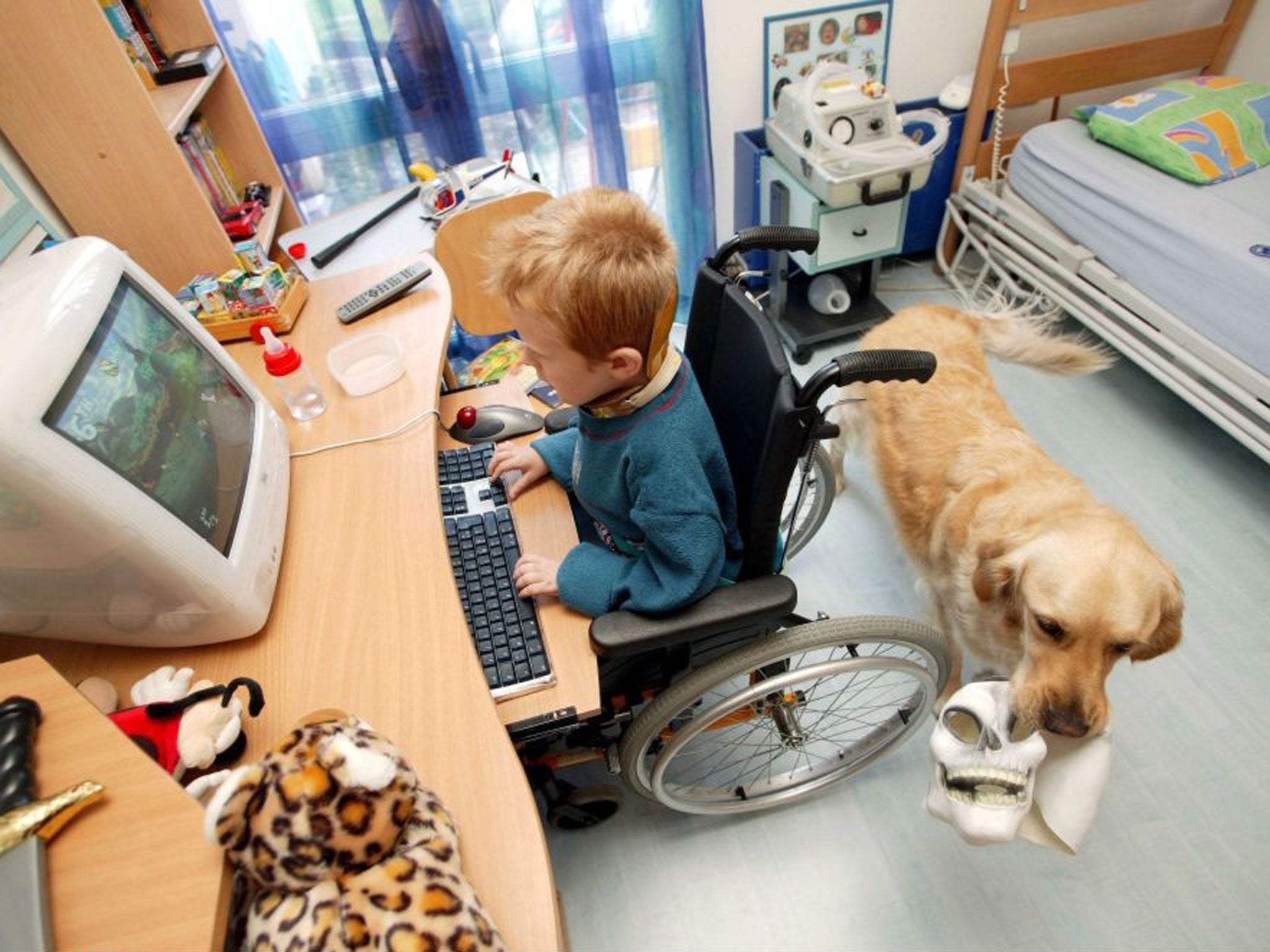Young disabled lack the basic necessities
Families coping with disability also face poverty and isolation, Children's Commissioner warns

Your support helps us to tell the story
From reproductive rights to climate change to Big Tech, The Independent is on the ground when the story is developing. Whether it's investigating the financials of Elon Musk's pro-Trump PAC or producing our latest documentary, 'The A Word', which shines a light on the American women fighting for reproductive rights, we know how important it is to parse out the facts from the messaging.
At such a critical moment in US history, we need reporters on the ground. Your donation allows us to keep sending journalists to speak to both sides of the story.
The Independent is trusted by Americans across the entire political spectrum. And unlike many other quality news outlets, we choose not to lock Americans out of our reporting and analysis with paywalls. We believe quality journalism should be available to everyone, paid for by those who can afford it.
Your support makes all the difference.The Children's Commissioner for England has called on the Government to urgently review the adequacy of support provided to families with disabled children. Research published today shows that some struggling with low incomes are not able to properly heat their homes, while other disabled young people cannot provide enough food or clothing for themselves.
It found that some families in Britain cannot afford the basic necessities a disabled child is entitled to in order to live a dignified life. For many disabled children and their families, the impact of low incomes on this inability to meet basic needs was compounded by inadequate access to services, personal support and helpful information. "Although families with disabled children often have rights to welfare payments and practical support, the incomes of many do not cover the additional costs of raising and caring for a disabled child," the Office of the Children's Commissioner (OCC) said.
The OCC report examined various aspects of the lives of families with disabled children, including money, benefits and social support, family life and alternative care, education, health, mobility and work. A steering group of 11 disabled children and young people helped to lead the research. It highlights that despite examples of good practice from local authorities many still faced patchy provision and support. Both young people and parents raised concerns over benefits not covering their costs, while parents spoke of difficulty re-entering the job market due to a lack of suitable childcare. They also said they were worried about future changes to the benefits system.
Some children spoke of isolation and bullying in their education, while a number of young adults felt their independence was compromised by a lack of support for living on their own, lack of transport provision and inadequate activities provided by local authorities and health services. Parents also said that a lack of short-break provision, or respite care, put a strain on emotional well-being, while having a low income often put such services out of reach.
The OCC is calling on government departments to demonstrate greater awareness of disabled children's rights and to publish clear advice about services offered. Maggie Atkinson, Children's Commissioner for England said: "[This report] paints a disturbing picture of the lives of many disabled children living in low-income families. Whilst most feel loved and supported, some cannot afford the basic necessities to live in dignity. This is simply not good enough and breaches their rights. Disabled young people are already some of the most vulnerable members of our society and being raised in poverty makes this even more acute. This is why we undertook this work and why we are seeking an urgent review of the adequacy of support provided for every disabled child in England."
Join our commenting forum
Join thought-provoking conversations, follow other Independent readers and see their replies
Comments